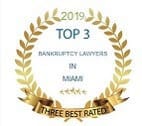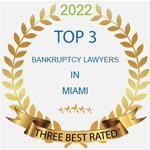During and after bankruptcy, creditors must be kept in check
In the legal community, the bankruptcy process is sometimes referred to as “bankruptcy protection.” Indeed, there are some important protections that bankruptcy can offer to borrowers who are behind on their debts, one of which is protection against ongoing harassment and collection efforts by creditors.
Your creditors are the banks, credit card companies and other institutions that you owe money to. Sometimes, your creditors are the same entities that you borrowed money from in the first place. Other times, they may be companies you have never heard of. This can occur when the original lending institution sells or transfers the right to collect on your debt to another entity, usually for a fraction of what you owe.
Creditor violation of the automatic stay
One way that bankruptcy can protect you from your creditors is through a powerful tool called an automatic stay. An automatic stay is a court order that goes into effect immediately when you file a bankruptcy petition, barring most creditors from continuing their collection efforts against you. The automatic stay remains in effect for the duration of your bankruptcy case.
Examples of some common collection actions that can be stopped or suspended by the automatic stay include:
- Collection calls and letters
- Lawsuits
- Wage garnishment
- Foreclosure
- Eviction
- Repossession
- Utility disconnection
If your creditors have been notified of the automatic stay and still continue in their attempts to collect payment from you after you have filed for bankruptcy, it may be illegal. Creditors that willfully violate the automatic stay may be required to pay you for the violation.
Creditor violation of debt discharge
Similarly, it is against the law for creditors that continue to harass you or try to collect payment from you after your debts have been discharged at the conclusion of the bankruptcy process. When your debts are discharged or forgiven through bankruptcy, you are no longer required to pay them back, and your creditors are no longer permitted to try to collect payment from you on those debts.
After bankruptcy, any attempt to collect on a discharged debt may be a violation of federal bankruptcy laws, and of a consumer protection law known as the Fair Debt Collection Practices Act, or FDCPA. It may also violate Florida’s state-specific debt collection law, the Florida Consumer Collection Practices Act, or FCCPA. As with violation of the automatic stay, creditors who continue their collection efforts after your debts have been discharged can be required to pay you for the violation, including the legal costs involved in pursuing your claim.
Protect your legal rights
If you have been contacted by creditors after filing for bankruptcy, it is important that you talk the situation over with a knowledgeable bankruptcy attorney in order to protect your legal rights and financial interests. Contact the Miami bankruptcy lawyers at Kingcade Garcia McMaken, for a personalized advice based on your individual circumstances.
















